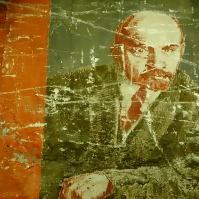 Perhaps the most amazing aspect of travel is its ability to reach down inside us and change the very bedrock of our thinking.
Perhaps the most amazing aspect of travel is its ability to reach down inside us and change the very bedrock of our thinking.
Approached with an open mind and an open heart, travel not only helps us better understand ourselves and others, it can also explode the myths and prejudices we grew up with—preconceived notions we might not even know exist.
Take the case of a friend of mine who was raised in Rhodesia (now the very sad country of Zimbabwe).
When she was growing up in the 1960s and ’70s, she thought it completely natural that 8 million black people lived, literally, at the beck and call of 100,000 white people.
So isolated was she that it never occurred to her to question this; it was her world as she knew it. So, like all white families, hers had servants. When her family traveled to game reserves or into the countryside, the servants went along, not to enjoy the sights or to vacation, but to cook and clean.
Throughout the country all building crews were black. All construction bosses, white. All road crews were black. All road crew bosses, white. On the large coffee and tea plantations all field hands were black. All farmers, white.
The disparities were so great that when white families went for a drive, they always brought along a black servant so he could change the tire if they got a flat. (A common occurrence in Africa, where paved roads were few).
Then, when she was 17, my friend went to Europe. On her first day in Paris she saw something that blew open her world and changed her forever. What was this amazing sight? Not the Louvre. Not the Eiffel Tower. Not the Tuilleries.
 Just a road crew—a road crew of white workers with a black boss. “Up until that moment it never occurred to me that white people could do jobs that involved physical labor,” she recalls. “I’d never seen it. I just stood there, completely stunned. It was as if I’d been blind and suddenly could see.”
Just a road crew—a road crew of white workers with a black boss. “Up until that moment it never occurred to me that white people could do jobs that involved physical labor,” she recalls. “I’d never seen it. I just stood there, completely stunned. It was as if I’d been blind and suddenly could see.”
These “aha” moments are one of travel’s great gifts. In my case, my aha moment came in the former Soviet Union. Mind you, by the time I was sent there to cover a story for The New York Times syndicate, I’d already been on the road for 10 years. Because of this and my upbringing in a very open-minded family, I thought I was a sophisticated person who saw the world as it truly was, not as my country or culture would have me believe. But the Russian people taught me otherwise.
When I was sent to the Soviet Union, we were more than four decades into the Cold War. They were the Evil Empire bent on spreading Communism throughout the world. We were the only thing standing between them and world dominance.
Every American knew that, including the journalists working at the Times‘ Moscow bureau. By the time I showed up for my month-long assignment, many of them had been living in Russia for years.
Their homes were bugged. They were watched wherever they went and they found my assignment—to mingle with the Russian people—laughable.
 How could anyone invited to the country by the Russian government, accompanied by a hand-picked interpreter and traveling with the KGB get the “real” story? Especially when everyone knew the Russian people were in lockstep with their government’s policies and those policies included a deep and abiding hatred for the United States.
How could anyone invited to the country by the Russian government, accompanied by a hand-picked interpreter and traveling with the KGB get the “real” story? Especially when everyone knew the Russian people were in lockstep with their government’s policies and those policies included a deep and abiding hatred for the United States.
I agreed with them. What American didn’t?
But then funny things began to happen. I attended Russian Orthodox churches and after the service, little old grandmothers dressed in wool coats and wearing babushkas (head scarves) came up, hugged me and whispered, “Why do you hate us? We were with you at the Elba.”
Or I’d be standing in a crowd, perhaps at an amusement park, and I’d feel a hand on my arm and a voice in my ear saying, “You’re so lucky to be free.” When I looked around to see who was speaking, they’d disappeared.
Each day, incidents, both large and small, told me that my own view of Russians was skewed. I’d come to believe my own government’s propaganda and I didn’t even know when or how it happened.
Was it the day in elementary school we were all hustled into the auditorium to listen to President Kennedy’s speech about the Cuban missile crisis? Could it have been the news stories about people building fall-out shelters in their basements in case of nuclear attack?
 Was it the words journalists used to describe Russia and its people? Words like gray, barren, sullen and militaristic.
Was it the words journalists used to describe Russia and its people? Words like gray, barren, sullen and militaristic.
When did these people who I was now experiencing as funny, exuberant and educated come to be the Evil Empire? Why hadn’t anyone ever told me that they “got” their government, they hated it and they had to live with it anyway. They weren’t naïve. In many ways they were savvier than us.
It killed them that Americans, with our easy access to all the information in the world, seemed completely uninterested in it. They couldn’t figure out how we could fail to understand their suspicion of the West given their history. When I visited a college dorm (with more depressing accommodations than any prison in the United States), they howled with laughter when I noted that the newspaper they were using as toilet paper must be indicative of their feelings about the government-run press.
Day after day people did and said things that made me question my beliefs. It was, as my friend from Rhodesia said, “As if I was blind and now I could see.”
That was when I came to believe in travel as the ultimate transformative experience.
One that can make people question even their core beliefs and come to see others not as the enemy but as people stuck in a system they might loath but living in a country that they love.
For years I’ve joked that if the billionaire George Soros was serious about trying to promote democracy around the world, he’d stop trying to influence governments and just pay for people to travel. Once you’ve seen and experienced people first hand, it’s hard to go back to seeing them as the “other.”
Given today’s world, with its fear of Muslims, its “axis of evil” and its condemnation of whole nations based on their governments, all I can say is “George Soros, get out your checkbook. It’s time to pay for a world full of aha moments.”
By Jamie Simons for PeterGreenberg.com.
Readers, share your own aha moment in the comments.
Read more from the Grateful Traveler Series in our Personal Travel Journals section.
Or read the post that started the Grateful Traveler Series: An Eskimo Showed Me the Way.












